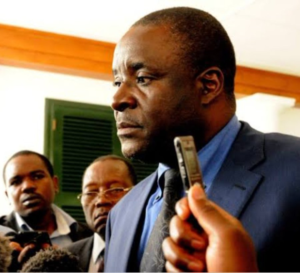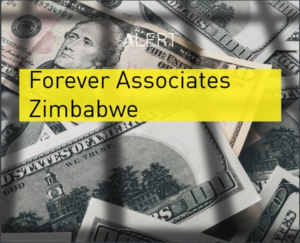ZIMBABWE’S GOLDEN SCANDAL: A NATION’S WEALTH SOLD WITHOUT PAYMENT

Zimbabwe is embroiled in a significant scandal, as it has come to light that its gold reserves were allegedly sold to a Middle Eastern country without receiving any payment. This startling revelation was made by Zanu PF spokesperson Chris Mutsvangwa during a press conference at the ruling party’s headquarters in Harare. According to Mutsvangwa, this desperate transaction was executed in an effort to secure United States dollars in the face of debilitating Western sanctions.
The unpaid gold reserves debacle is not just a financial crisis but a substantial national ordeal. In a period of pronounced economic distress, Zimbabwe has seemingly relinquished its precious gold and the expected foreign exchange, an act described by many as a grand heist against the state. The scandal reveals profound issues of governance and accountability within the country.
Mutsvangwa did not disclose specific individuals involved but hinted that the dubious deal took place during the administration of the late former President Robert Mugabe. It potentially involved past governors of the Reserve Bank of Zimbabwe (RBZ), such as Leonard Tsumba, Gideon Gono, and John Mangudya, and finance ministers including Simba Makoni and Patrick Chinamasa, who governed the operations of the RBZ during the period after economic sanctions were imposed in 2002.
The severity of these allegations and the mysterious identities of those involved demand transparency and clarity. The lack of detailed disclosure has fueled public speculation and distrust, significantly undermining efforts to address and rectify the situation. Furthermore, the international dimensions of this incident, which involve an undisclosed Arab nation, add a layer of diplomatic sensitivity and complexity.
Mutsvangwa’s insistence on secrecy does not align with public interest. Rather, it seems to protect potential wrongdoers and stalls the process of justice and the recovery of the nation’s assets. International bodies such as the International Monetary Fund, along with external auditors like Deloitte & Touche and KPMG, should be involved in a more active role to scrutinize and possibly investigate these claims.
The impact of the non-payment for the gold is profound, depriving Zimbabwe of essential resources needed to alleviate its ongoing economic issues. The nation grapples with cash shortages, high inflation, and other socioeconomic challenges, making the recovery of these assets a pressing priority.
Identifying the nation that allegedly received the gold without compensation is crucial. Uncovering this information would empower Zimbabwean authorities and international media to seek answers and potentially initiate negotiations to recover the lost funds or assets. Outlets such as The NewsHawks are poised to challenge the leaders of the involved nation, seeking accountability and reparations for Zimbabwe.
This scandal underscores broader issues of corruption and mismanagement that have plagued Zimbabwe for decades. The unfolding situation not only demands immediate attention but also calls for a systemic overhaul in how the country manages and protects its resources. For Zimbabweans, resolving this matter is essential; it represents not just the recuperation of stolen assets but a step toward restoring trust in their leaders and institutions.
As this crisis unfolds, it is crucial to observe how the government addresses these serious allegations and works towards safeguarding the nation’s wealth. The people of Zimbabwe deserve transparency, accountability, and justice. The international community also has a role to play in ensuring that such transgressions are not overlooked, thereby helping to uphold principles of sovereignty and economic integrity in global relations.





